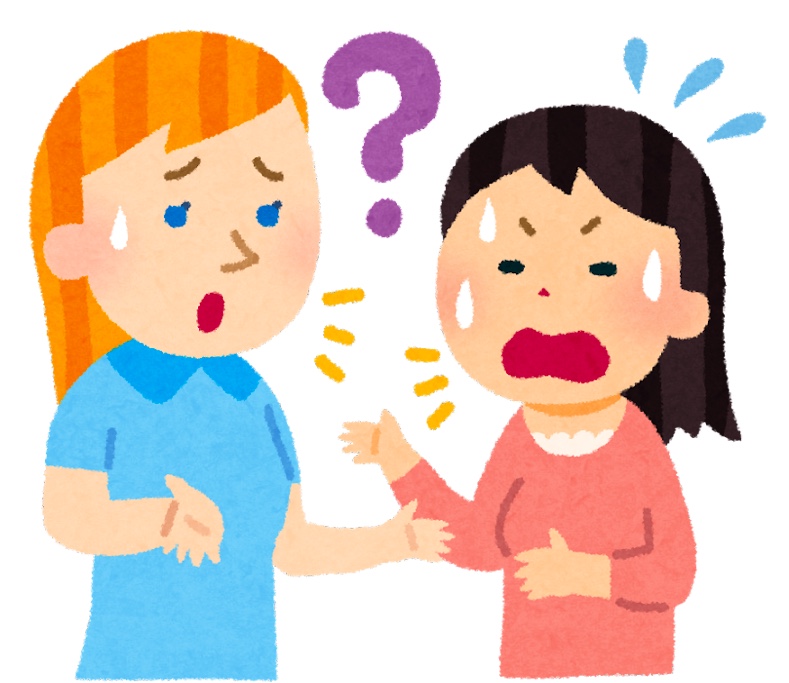Many people can come to Japan on vacation and find it difficult to communicate in English.
So, in this article, we will explain why Japanese people are not good at speaking English.
The characters used are different
English uses the alphabet and Japanese uses “Aiueo“. Yet, most countries are good in utilizing English language and using the alphabet.
Even though the reading of the alphabet differs slightly from country to country, they are not poor when it comes to English vocabulary. This is one of the disadvantages for Japanese who rarely use the alphabet.
Word order differs between English and Japanese
While English uses the grammatical order “who, do, what”, Japanese uses “who, what, do”, which is a fundamental difference in word order. English has a grammatical rule called the five-sentence pattern, and in order to become familiar with English, you must first know the basic word order. This English word pattern and grammar are the areas in which Japanese people experience difficulty.
Japanese and English pronunciations are highly dissimilar, making communication challenging
Japanese pronunciation is poor compared to other languages
Japanese and English “sound” very differently from one another. No matter how well you use proper syntax and sentence structure, if your pronunciation is poor, it will be difficult to understand you. It’s crucial to correctly position the tongue and form the lips in order to learn English pronunciation. You will need some practice to say it correctly because this kind of pronunciation does not exist in Japanese.
Listening skills are greatly impacted by poor pronunciation and vice versa
Listening and pronunciation are strongly intertwined. Even native English speakers who speak quickly can be understood if words are spoken correctly and, in a rhythm, specific to English. Japanese speakers, who have limited opportunities to study the mechanics of native English pronunciation, do not, however, noticeably enhance their pronunciation. As a result, many of them also have trouble listening.
Educational Issues in Schools
Reading comprehension, grammar, and English vocabulary are the three main areas of emphasis in English instruction books. The Center Test and other exams now include a listening portion, although speaking is still not one of them.
Although English is taught extensively in Japanese education, there is a dearth of “speaking practice,” and there are significantly fewer English-speaking teachers in Japan than elsewhere. As a result of the dearth of speaking opportunities, English conversation skills in Japan tend to advance slowly.
Japanese people don’t need to speak English
The requirement for English is the final main factor. In Japan, you may get by without speaking English at work. Japan is so wealthy that even if you don’t speak English, you can still participate in its economy. English is a must in regions where tourism and other sectors are the main sources of wealth for the nation. Your ability to earn money or support your lifestyle will suffer if you can’t speak English.
This is mostly due to Japan’s status as an island nation. English, Chinese, and Spanish are invariably the three most widely spoken languages in a nation where nations are close to one another. Japan, an island country with a thriving economy, inevitably has limited possibilities to speak English. Therefore, “Japanese people’s English proficiency” has been impacted by the setting where English is not necessary.




Comments